20 children don’t play together for 20 years. But one thing will tell of what becomes of their lives. From what was in the past, what is, presently and what will be in the future— time.
It was a different Friday morning in November 2007 at Federal Government College, Ijanikin, Lagos. The students were excited they will be learning beyond the classroom as they matched into a white school bus, ready to take them on a journey to the Nigeria National Theatre in Lagos, a place where Art, Culture and Tourism meet purpose.
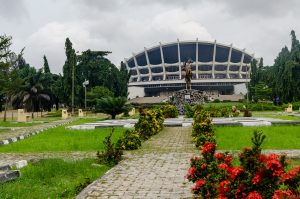
This visit stirred meaningful conversations between the Theatre Curator and the students who left the gigantic structure with a renewed passion for Art and the exploration of their innate gifts and talents. Many also left pondering on the Curator’s worry on how the Theatre was gradually becoming a shadow of itself— and his dream for a renovation and possible overall restructuring to facilitate a proper maximization of the Theatre’s potential for real-time impact in the lives of both emerging and established Creatives.
17 years later, November 2024, only time can tell what the students have been up to, over the past one decade and what the future holds for them in their country, Nigeria.
Each child on that journey of yesterday now faces different paths as adults of today. With one of them now a journalist and the author of this article, intrigued by how much has changed at a place that birth artists, nurture artworks and serves as a home to dreams untold. Intrigued by how today has become a reality of the Curator’s dream of old— with the recent world class renovation of the National Theatre, a product of the public-private partnership between the Bankers’ Committee and the Nigeria Ministry of Art, Culture, and the Creative Economy.
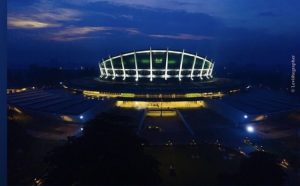
Photo Credit, National Theatre Nigeria
Photographed by|| Levi Oluka
“This is more than a building— it’s a promise.
A promise that Nigeria’s rich cultural heritage will continue to thrive. That the Arts will always have a stage. Our stories will be told for generations to come, and that this cultural epic center will continue to inspire, uplift and fuel the creative spirit of our generation.”
“The successful renovation of the National Theatre marks a significant milestone in our collective effort to preserve essential cultural assets and create new opportunities within the creative industry.” –
Hannatu Musawa, Minister of Art, Culture, Tourism and Creative Economy.
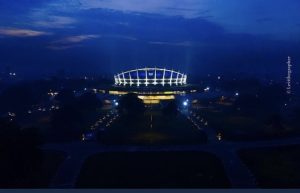
While this renovation stays a renewal of hope for the Nigeria Creative Industry and Creative Economy in entirety, it is integral for all major stakeholders to maximize an inside-out approach to sustainable transformation as progress is a process.
This entails fully leveraging and exploring the untapped opportunities within this new phase of the National Theatre for both emerging and established Creatives who are the engine force of the nation’s Creative Economy.
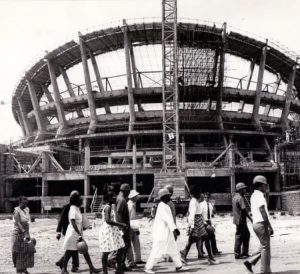
Credit: National Theatre Nigeria
In a close alignment to this, under the leadership of the National Theatre’s General Manager and CEO, Mrs Tola Akerele, a new series of workshops and courses began in August 2024. These workshops included, Project Management for Theatre Production, Introduction to Playwriting, and Storytelling for Audience Impact.
In a recent interview with Hello ICON Magazine Oluwatosin Yormekpeh, one of the participants of the workshop on Project Management for Theatre Production noted his biggest takeaway from the course was on his better understanding of the unlimited power of planning. In his words:
“Effective planning can save time, money, and energy while reducing stress when projects face unexpected challenges. A project’s success relies heavily on thoughtful preparation, making it essential to plan thoroughly. Simply put, planning serves as the foundation for any successful project, ensuring smoother execution and better outcomes.“
Furthermore, when asked how the National Theatre and the Nigerian Creatives can maximize the opportunities in this new era of renovation at the Theatre—in the spirit of collaboration, Mr. Yormekpeh noted that collaboration is key.
“I believe the National Theatre can establish a platform where creatives of all levels—emerging and professional—can come together to produce performances on a scale even large scale. Many creatives have great ideas but lack the resources to bring them to life. A resource-supported platform would inspire richer, more innovative works, as the lack of resources often leads to diluted creativity. By removing this barrier, more talents could thrive, moving beyond the current privilege of a select few, and fostering a broader, more inclusive creative landscape.”
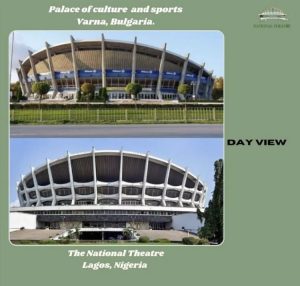
Photo Credit: The National Theatre
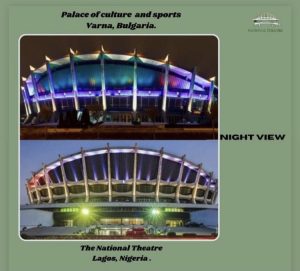
In this ever-evolving world we live in, thriving in the Nigeria Creative Economy and indeed, the rest of the world, goes beyond having great talents and good intentions. Like gold in its raw state, talent needs refinement to fully shine and good intentions, dreams and goals entail access to the right platform and provision of opportunities. —In duality, the current National Theatre has the capacity to continue to stand as a meeting point for both a more enabling and sustainable future of work.
Renewed hope comes with renewed responsibilities. Again, only time will tell of the real-time impact we envision as individuals and as a people.